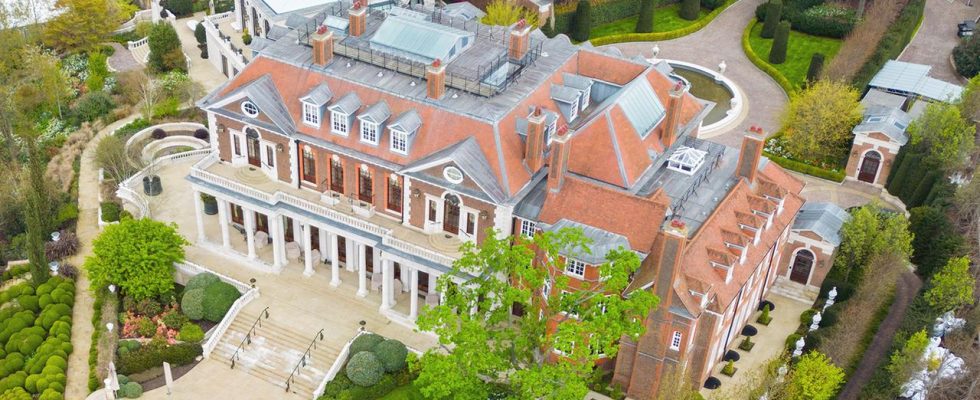The British government is officially taking action against Russian oligarchs in the country. But gaps in the sanctions list keep coming to light. Why is that?
Many people in Westminster have the impression that the British government’s sanctions against numerous Russian oligarchs are not really working, and above all that they are not being properly enforced. For example, Iain Duncan Smith. The conservative MP wanted to know from the government why Vladimir Lisin is not on the sanctions list. The steel magnate owns a large estate in Scotland, Aberuchill Castle.
Lisin is said to have close ties to Russian President Vladimir Putin. But Duncan Smith didn’t get a proper answer from the government. The Foreign Ministry is constantly reviewing the sanctions, it says in the reply letter ARD studio London is present. Individual cases cannot be discussed.
Duncan Smith has been criticizing the government for months. He calls the ministry’s sanctions list “absurd.” The US government’s measures are significantly more comprehensive.
Defeat in court
The British government points out that more than 1,600 people and companies will be subject to sanctions. But there are gaps: In 82 cases, the government has allowed oligarchs to use money from their assets to maintain their properties and for basic needs.
According to media reports, Mikhail Fridman was allowed to withdraw around 8,000 euros per month. During the first year of the war in Ukraine, he was also allowed to pay for a private chef, repairmen for his estate, and a driver.
But now the Russian billionaire suffered a setback in court. At the end of October, the London High Court ruled that the 59-year-old was not allowed to spend almost 35,000 euros per month on his property Athlone House in north London. Fridman had sued for this.
Before the verdict was announced, the entrepreneur left London and flew to Russia. The court’s decision and his departure indicate that he may have found the pressure from the British government too great. What happens now to Athlone House is unclear.
Athlone House is expensive to maintain – oligarch Fridman wants to spend more money on it than a court would allow him.
Difficult investigations
But in many other cases it is much more difficult to build up this pressure. Oligarchs with close ties to Putin have transferred their assets to divorced wives, children or companies registered overseas.
Actually, these companies have to declare who owns them and who owns the property that is registered to them. But a study by the London School of Economics has just shown that 70 percent of the registered assets cannot be assigned.
Very welcome for a long time
Margaret Hodge, a Labor MP who has been working on the issue of money laundering and Russian oligarchs for years, sees several reasons why so many extremely rich Russians with connections to Russia’s political elite are still able to live well in Britain, or are only starting to do so relatively late ended up on the sanctions list. “This is a mix of incompetence, a lack of resources and a reluctance to deal with these extremely wealthy people,” criticizes the MP.
Hodge points to donations the Conservative Party has received from Russia. There is also a special political practice. For years, the United Kingdom has attracted investors from abroad with special conditions.
There were “golden visas” for donors from abroad if they brought large sums of money into the country. And many politicians still have the feeling that the government could harm Great Britain and the London financial center if sanctions are now imposed on once welcome investors.
You can hear more about this topic in today’s edition of the tagesschau podcast 11KM: Moscow on the Thames

